From Lights & Sirens to Resilience

DRI CANADA July Webinar - From Lights & Sirens to Resilience
This webinar will address the critical implications of emergency and disaster response, focusing on the intersections of resilience from the perspective of emergency management and disaster recovery. We aim to bring together experts in these fields to share their ideas, experiences and strategies to improve our collective understanding and preparedness.
This webinar is a partnership between DRI Canada and the Canadian Journal of Emergency Management.

Alexander Landry is a Canadian Army officer of 12 years, with a significant background in operations and emergency management. He also currently serves as a member of the Disaster Recovery Institute Board of Directors.
Alexander is extensively involved in his community as the Senior Manager for Strategic Initiatives with the Canadian Journal of Emergency Management and a member of the St John Ambulance New Brunswick Council Board of Directors. Alexander brings forward several certifications in business continuity and management, namely as a Certified Business Continuity Professional, Project Management Professional, and Professional Engineer. He holds a Masters of Business Administration from the University of Fredericton, and a Bachelors in Chemical Engineering from the Royal Military College of Canada. He is currently pursuing a Masters of International Affairs at King’s College London and is involved in research pertaining to disaster response within the international community.
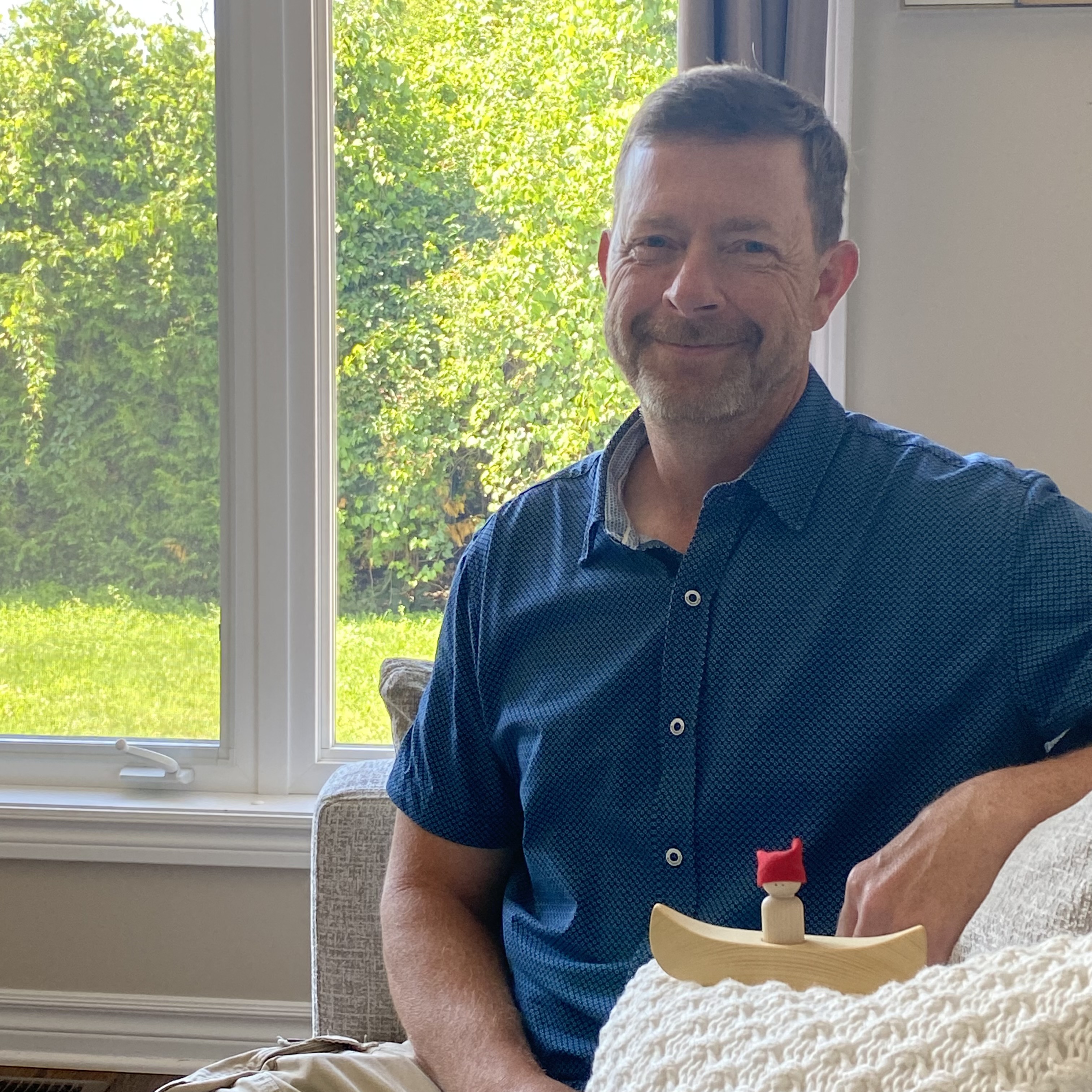
A veteran, author and professor specializing in preparedness communications, readiness analytics and community resilience. As the Principal Researcher at Preparedness Labs Incorporated, he provides education on adopting a prepared life for individuals, families and communities through books, online courses and 1-1 mentorship. Jeff lectures in the Disaster and Emergency Management program at Royal Roads University, where he posits the foundations of preparedness are personal responsibility, attitude, relationships and strategic thinking. He serves on the Board of Directors for the International Social Capital Association and local organizations.
Jeff is an avid backcountry paddler and host of Canada’s #2 podcast on emergency preparedness, Inside My Canoehead.

Dr. Michel C. Doré is Associate Professor at Université du Québec à Montréal in the Disaster Risk Resilience graduate program. Dr. Doré cumulates 38 years of experience in emergency management. He is a registered nurse and registered primary care paramedic. He is also co-founder and past president of the Canadian Risk and Hazards Network and past co-chair of Canada's Platform for Disaster Risk Reduction.
He has been Assistant Deputy Minister for Health Canada Regions and Programs Branch of and Associate Deputy Minister responsible for emergency management at la Direction générale de la sécurité civile et incendie of Sécurité publique du Québec.
Dr. Doré holds a nursing degree, a master’s degree in community health for the Université de Montréal; and a doctoral degree in Sociology of complex organisations from the University of North Texas. Since 1993, Dr. Doré holds the professional designation of Certified Emergency Manager from the International Association of Emergency Managers.
As a volunteer for St-John Ambulance for more than 28 years, he currently serves as the National emergency management advisor and chair of the Québec Council. He also serves for the last 10 years with CASARA/SERABEC as air search and rescue mission navigator.
Dr Doré received numerous awards among them, the Emergency Management Lifetime Achievement Award from the Government of Québec (2016), the Outstanding Contribution to Emergency Management Award for the Canadian ministers of public safety (2017) and the Joseph T. Scanlon Lifetime Achievement Award for the Canadian Risk and Hazards Network (2023).
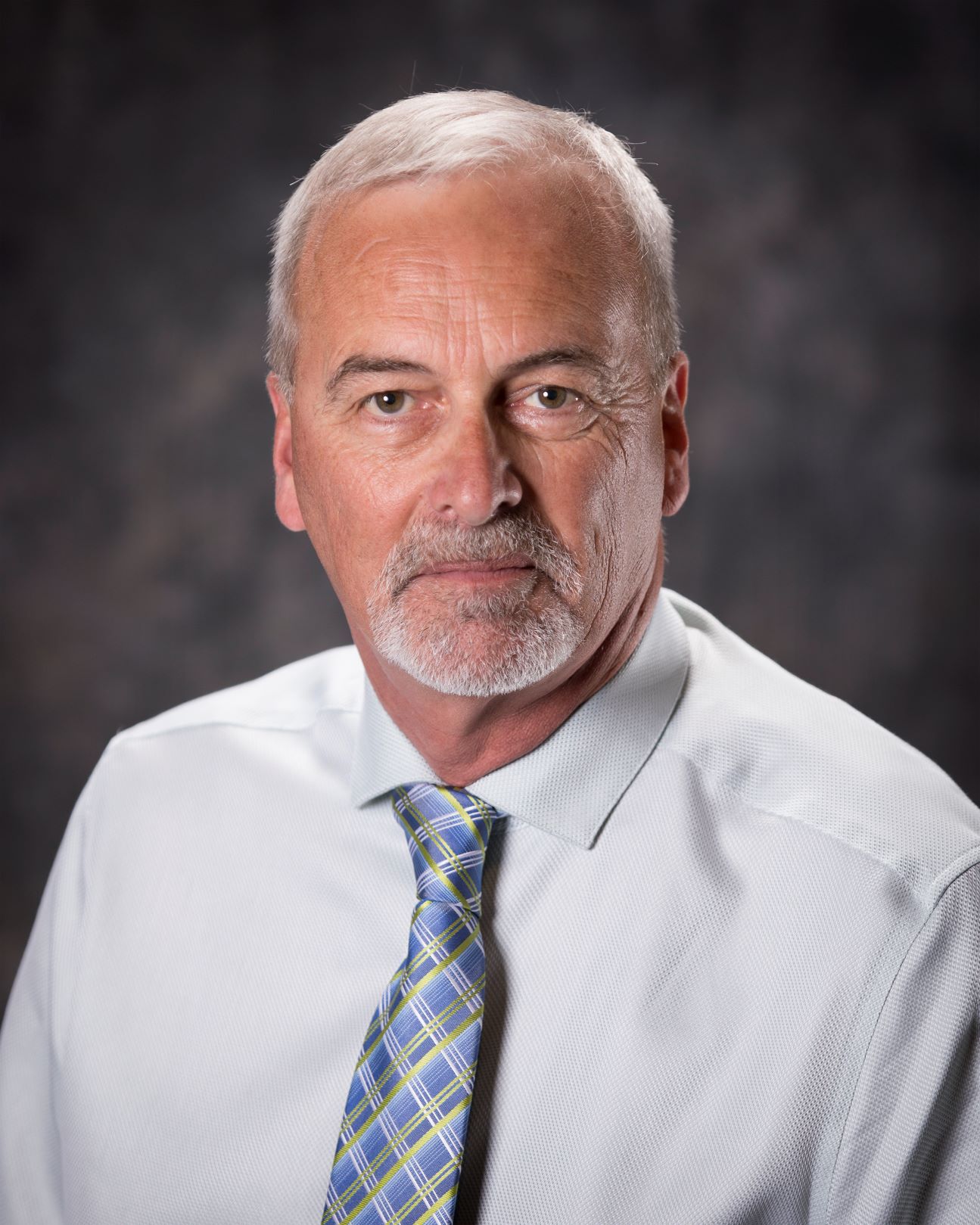
Ernie Polsom brings a wealth of fire and emergency management expertise to his consulting practice after nearly four decades in public service at municipal and provincial levels. His distinguished career includes roles as Fire Chief in Regina, SK, Leduc, AB, and Taber, AB, where he oversaw fire, ambulance, and emergency services.
Ernie also served in the Alberta Fire Commissioner’s Office for close to eight years and acted as the Director of Field Operations at the Alberta Emergency Management Agency, offering support to municipalities, First Nations, and Metis Settlements. Ernie leverages his extensive knowledge in fire, ambulance, emergency management, and governmental policy in his current consulting work.
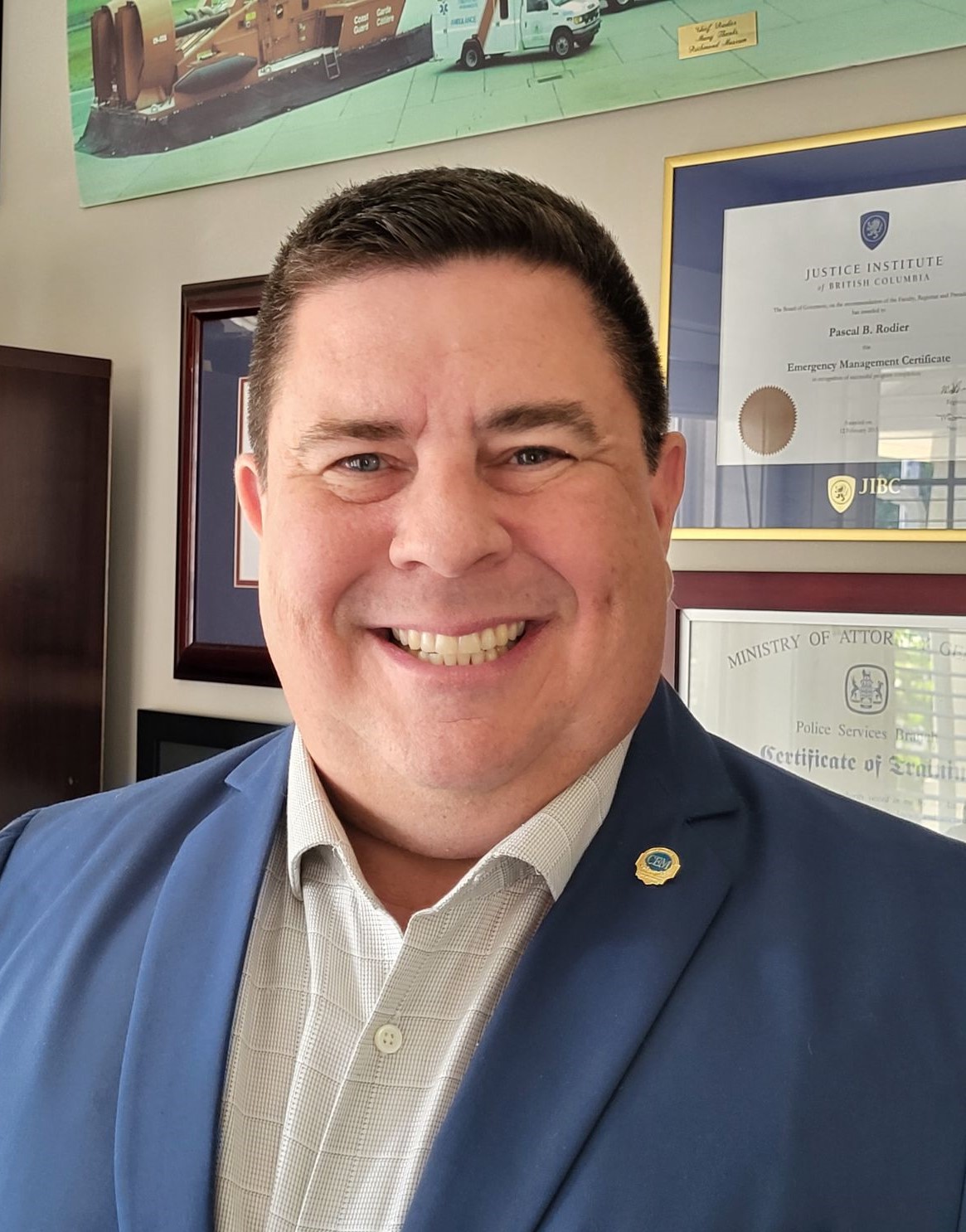
Pascal brings with him over 35 years of experience and progressive leadership roles in public safety and emergency management. He has a breadth of experiences in leading teams on several very large-scale incidents and civic events. He has been a presenter, facilitator and an Emcee at many public events, courses, workshops and national and international conferences.
Pascal is a Certified Emergency Manager, a Certified Healthcare Executive, a Situation Awareness Specialist as well as a Professional Continuity Practitioner. He has an extensive education in public safety and emergency management, a Master of Arts in leadership, from Royal Roads University, certifications from the Emergency Management and Emergency Exercise Design Programs at the JIBC as well as multiple certificates from FEMA. He is currently a Lead Instructor in the Incident Command System in Canada.

Alexander est très impliqué dans sa communauté en tant que gestionnaire principal des initiatives stratégiques pour le Journal canadien de la gestion des urgences et membre du conseil d'administration du Conseil de l'Ambulance Saint-Jean du Nouveau-Brunswick. Alexander possède plusieurs certifications dans le domaine de la gestion et de la continuité des activités, notamment en tant que professionnel certifié de la continuité des activités, professionnel de la gestion de projet et ingénieur professionnel. Il est titulaire d'une maîtrise en administration des affaires de l'université de Fredericton et d'une licence en génie chimique du Collège militaire royal du Canada. Il poursuit actuellement une maîtrise en affaires internationales au King's College de Londres et participe à des recherches sur la réponse aux catastrophes au sein de la communauté internationale.

With a master's degree in sociology from Université Laval, Jean-François has been working in public safety for over 17 years. He first worked in civil security for the Ministère des Transports et de la Mobilité durable (MTMD), before moving on to his current position as civil security advisor for the City of Lévis. He has been involved at both governmental and municipal levels in the creation of several plans, the conduct of exercises and the management of several man-made and natural events. His most notable professional experiences include managing the 2019 floods in the Chaudière-Appalaches region for MTMD and managing the COVID19 pandemic for the City of Lévis.
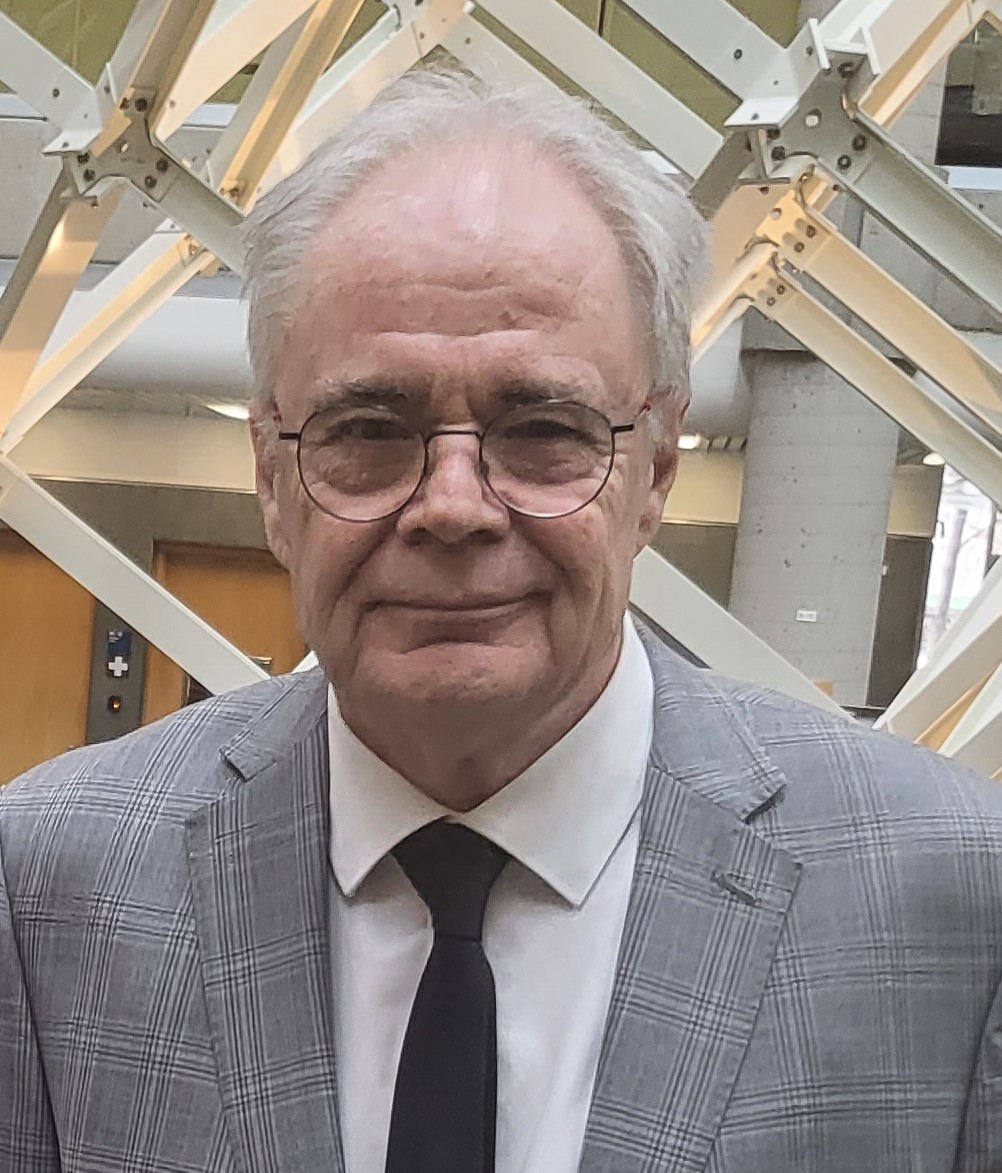
Guy Lapointe has been a volunteer search and rescue responder for over 33 years, and is currently President of the Association québécoise des bénévoles en recherche et sauvetage, as well as Vice-President of the Search and Rescue Volunteer Association of Canada (SARVAC). A former investigator and police officer with the Royal Canadian Mounted Police since 1979, Guy brings a wealth of experience to Canadian volunteer programs for members and municipalities.
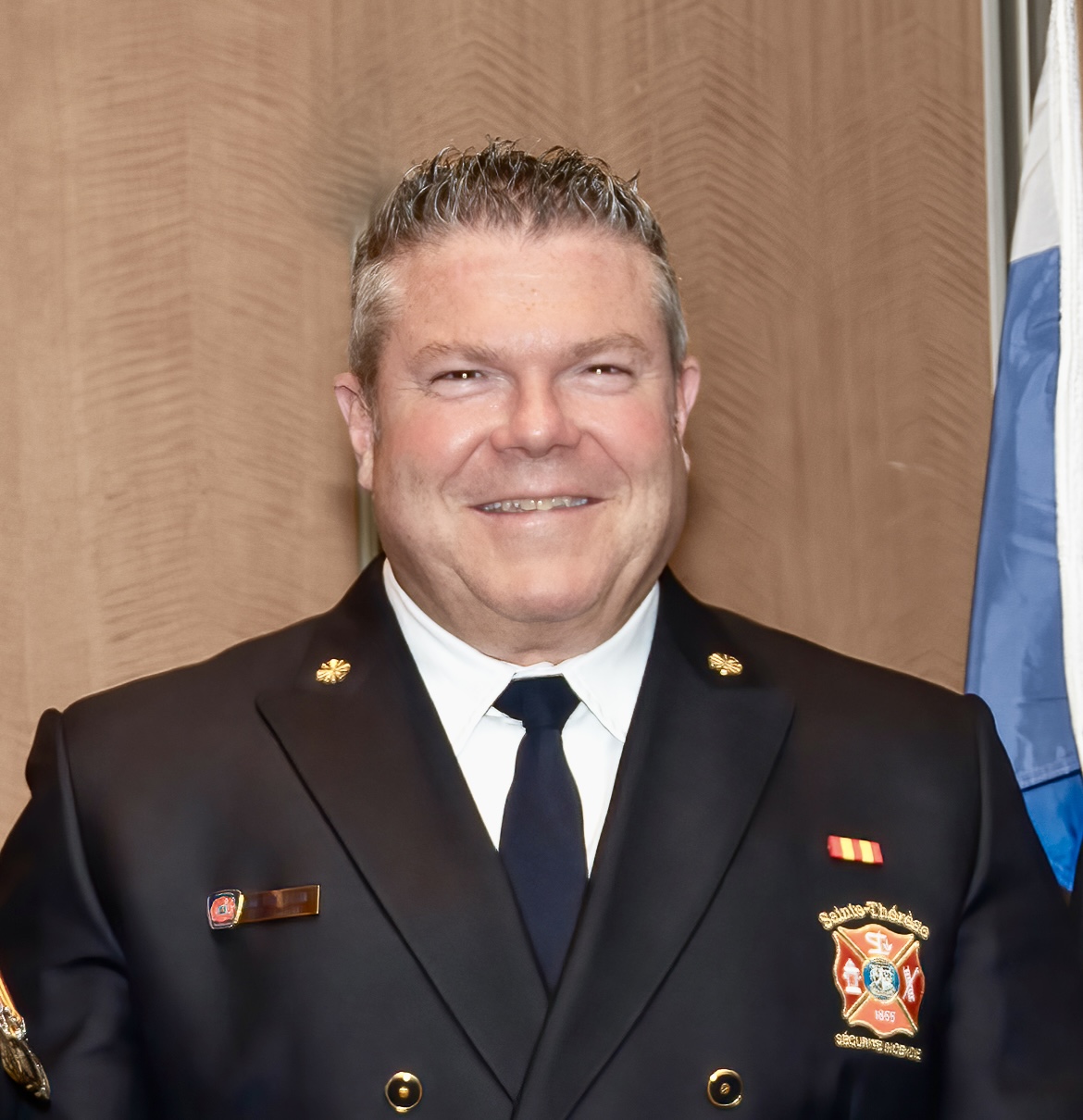
De 2020 à aujourd'hui, Christian est directeur du service de sécurité incendie de la ville de Sainte-Thérèse. Il est également enseignant pour le métier de pompier à l'Institut de prévention des incendies du Québec de 2001 à 2020.
Between 1992 and 2020, Christian was a member of the City of Montreal's fire prevention department. Notably, he was a staff member for the last 9 years. During his time with the City of Montreal, he managed numerous fires and a number of major events, including trapping citizens in their vehicles during snowstorms, spring floods, a major water leak in downtown Montreal, a land subsidence hazard in downtown Montreal, and the COVID-19 confrontation at Montreal's emergency measures center.
From 2020 to the present day, Christian has been Director of Fire Safety for the city of Sainte-Thérèse. He also taught firefighting at the Institut de prévention des incendies du Québec from 2001 to 2020.

A manager with over 20 years' experience in fire and civil security, Eric coordinated response and recovery for the major floods of 2017 and 2019 in Rigaud and Pointe-Fortune, as well as several other disasters in a multi-municipal context. In addition to his training as a firefighter, preventionist, officer, instructor and fire safety investigator, he holds a specialized graduate diploma in major risk management from UQÀM, where he is now busy completing a professional master's degree in geography focusing on resilience, risks and disasters. He has been a lecturer at Collège Montmorency since 2007, where he teaches the "Concepts de base en sécurité civile" course as part of the "Attestation d'études collégiales en prévention des incendies" program. He is Secretary to the Executive Board of the Association de la sécurité civile du Québec (ASCQ) and a member of the Scientific Committee of the Réseau inondations intersectoriel du Québec (RIISQ).